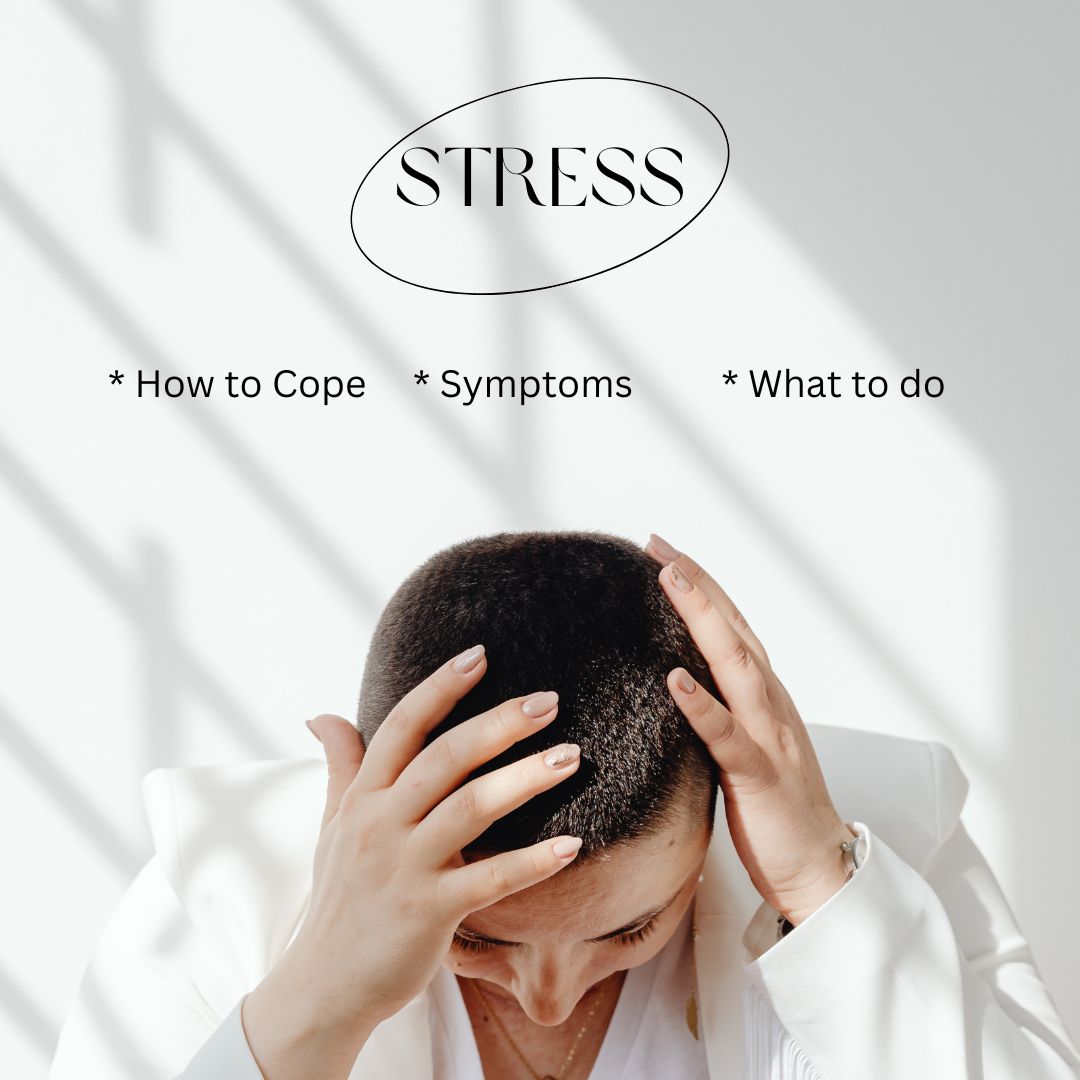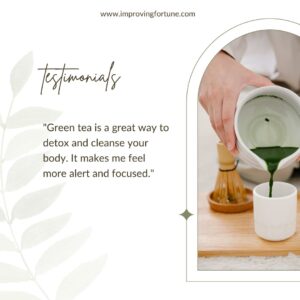Amazing Tips on How to Combat Stress & Inflammation
Are you feeling overwhelmed by stress and inflammation? If so, you’re not alone! Many people struggle with these issues on a daily basis. Fortunately, there are easy and natural ways to combat stress and inflammation.
In this blog, we’ll share some amazing tips on how to tackle these issues, so you can start feeling better and live a healthier life.
If you’re feeling overwhelmed and stressed out, you’re not alone. Stress is an inevitable part of life, and it can have a major impact on your physical and mental health. But the good news is that you can take steps to manage your stress and reduce its effects on your body.
When it comes to combatting stress and inflammation, there are many tips and strategies that can help.
First, it is important to recognise the signs of stress and inflammation in yourself and take steps to manage them. This can include things like getting enough sleep, eating a balanced diet, and engaging in regular physical activity.
Additionally, practicing relaxation techniques such as yoga, meditation, or deep breathing can be beneficial.
Finally, it is important to recognise when stress and inflammation are getting out of control and seek additional help if needed.
By following these tips, you can help reduce stress and inflammation and improve your overall health and wellbeing.
One of the primary ways that stress affects us is through inflammation. Inflammation can be triggered by a variety of factors, including stress, and it can have a wide range of negative impacts on our bodies.
So if you’re struggling with stress and inflammation, here are some amazing tips that can help you manage both:
- Get Adequate Sleep
One of the most important things you can do to reduce stress and inflammation is to get enough sleep. Studies have shown that inadequate sleep can increase inflammation, so make sure you’re getting at least seven to nine hours of sleep per night.
Getting adequate sleep is often overlooked when it comes to combating stress and inflammation. With busy schedules and the constant demands of daily life, it can be easy to sacrifice sleep in order to get tasks done. However, the benefits of getting enough sleep are numerous and critical to your overall health.
Stress and inflammation are linked in several ways, and both can have negative impacts on our health. Chronic stress can lead to increased levels of inflammation in the body, which can contribute to a range of health problems, from cardiovascular disease to mental health issues such as depression and anxiety. And, when we don’t get enough sleep, our bodies release stress hormones such as cortisol, which can further increase inflammation and exacerbate the negative effects of stress.
Getting adequate sleep can help reduce stress and inflammation in the body. When we sleep, our bodies have a chance to rest and repair, allowing our immune systems to work more efficiently and reducing the levels of stress hormones in our blood. This can help alleviate symptoms of stress and reduce the likelihood of developing chronic inflammation.
But how much sleep is enough? The National Sleep Foundation recommends that adults get between 7-9 hours of sleep per night, but the actual amount of sleep needed may vary from person to person.
The most important thing is to pay attention to signs of sleep deprivation, such as feeling tired or sluggish during the day, and to make an effort to get enough rest each night.
There are several strategies that can help you get better sleep and reduce stress and inflammation. Establishing a regular sleep routine, avoiding caffeine and alcohol before bed, and creating a relaxing sleep environment can all make a big difference.
Additionally, practicing relaxation techniques such as meditation or yoga can help calm the mind and reduce stress levels.
In summary, getting adequate sleep is a critical step in combating stress and inflammation. By prioritizing rest and making efforts to establish healthy sleep habits, we can reduce the negative impacts of stress and promote overall health and well-being.
So, next time you’re tempted to stay up late to finish a project or binge-watch a TV show, remember the benefits of a good night’s sleep and make rest a priority.
- Exercise Regularly
Exercise is one of the best ways to reduce stress and inflammation. Not only does it help to relieve tension and stress, but it also helps to reduce inflammation by increasing circulation and reducing levels of stress hormones. Aim for at least 30 minutes of moderate-intensity exercise on most days of the week.
Exercise is oftentimes considered an effective remedy for combating stress and inflammation. Regular physical activity not only helps to relieve stress from the body but also helps to boost the immune system, combat depression, and reduce the risk of chronic diseases.Stress is a common phenomenon experienced by people in everyday life.
Though many think of it as an inconsequential occurrence, studies show that chronic stress can lead to inflammation, which in turn, contributes to the development of various chronic diseases such as heart disease, diabetes, and cancer.
The human body responds to stress by releasing several hormones, including cortisol, which can affect the immune system negatively, leading to increased inflammation levels in the body. To counter this, practices such as exercise can prove to be effective.
Exercise has been found to be a great stress buster and immune booster. It helps to elevate the mood, reduce negative thinking, and counteract the negative effects of cortisol. Recent studies have revealed that people who engage in regular exercise have lower levels of inflammation in their bodies, thus reducing the risk of chronic disease.
Additionally, exercise helps to reduce oxidative stress levels in the body, which is when the body fails to get rid of waste and toxins, leading to inflammation. Endorphins, which are released during physical activity, also act as natural pain relievers and can help reduce inflammation.
Exercise doesn’t have to be complicated or grueling. Simple activities such as walking, cycling, swimming, or yoga, can significantly reduce inflammation and stress levels in the body. Engaging in these activities for at least twenty to thirty minutes, three to four times a week, can provide potential benefits to the body and mind.
In conclusion, regular exercise is a powerful tool in combating stress and inflammation. It’s an effective way to boost the immune system and ward off chronic diseases while providing an overall sense of well-being.
So, pick an activity you enjoy and make it a part of your routine, your body and mind will thank you.
- Eat Anti-Inflammatory Foods
Diet can play a major role in managing stress and inflammation. Eating plenty of anti-inflammatory foods such as nuts, seeds, and fatty fish can help reduce inflammation and improve overall health.
In today’s fast-paced world, stress has become a common problem that affects people of all ages. Chronic stress can lead to inflammation in the body, which can cause a host of health issues. However, making simple changes to your diet can have a significant impact on reducing stress and inflammation.
Eating anti-inflammatory foods can help combat the negative effects of stress on the body. Inflammation is a natural and necessary response of the immune system to fight off infections and heal injuries. However, chronic inflammation caused by stress can damage tissues and lead to chronic diseases such as arthritis, heart disease, and even cancer.
The good news is that many foods have anti-inflammatory properties that can help reduce inflammation and stress in the body. These foods include fruits and vegetables, whole grains, nuts and seeds, and lean proteins such as fish and poultry.
Fruits and vegetables are high in antioxidants, which help reduce inflammation in the body. The best choices are those with vibrant colors such as blueberries, cherries, spinach, and kale. Whole grains such as quinoa and brown rice are rich in fiber, which helps promote a healthy gut and reduce inflammation.
Nuts and seeds, such as almonds and chia seeds, are high in omega-3 fatty acids, which have anti-inflammatory properties. Lean proteins such as fish and poultry are high in vitamin D, which has been linked to lowering inflammation in the body.
Other foods that are known to have anti-inflammatory properties include ginger, turmeric, garlic, and green tea. These foods can be easily incorporated into your diet by adding them to smoothies, salads, or cooking with them.
In addition to eating anti-inflammatory foods, it is important to avoid processed and junk foods, which can increase inflammation in the body.
It is also important to stay hydrated by drinking plenty of water and limiting your intake of sugary drinks and alcohol.
In conclusion, reducing stress and inflammation in the body can be achieved by making simple changes to your diet. Incorporating anti-inflammatory foods into your diet can help combat the negative effects of stress on the body and improve overall health.
So, start making healthy choices today and feel the difference in your body and mind.
- Consider Supplements
There are a number of supplements that can help to reduce inflammation and stress. Omega-3 fatty acids, turmeric, and probiotics are all excellent options.
Nowadays, stress and inflammation are two of the most common health problems that people face. Chronic stress can lead to anxiety, depression, and even physical conditions such as diabetes and heart disease.
Inflammation, on the other hand, is a natural immune response to injury or infection, but when it becomes chronic, it can lead to conditions such as arthritis, asthma, and cancer.
While there are many lifestyle changes that can help combat stress and inflammation, such as exercise, a healthy diet, and meditation, there are also supplements that can provide additional support.
Here are some supplements that have been shown to be effective in combating stress and inflammation:
- Omega-3 fatty acids: These essential fatty acids are found in fish oil, flaxseed oil, and algae-based supplements. They have been shown to reduce inflammation in the body, lower levels of stress hormones, and improve cognitive function. Omega-3 fatty acids have been found to be beneficial in combating stress and inflammation. Stress can lead to the production of inflammatory cytokines that can damage cells and tissues, while inflammation itself can also cause stress. Omega-3s have been shown to regulate the secretion of these cytokines, thus reducing the stress response and inflammation in the body. They also promote the production of anti-inflammatory molecules that help protect cells and tissues from damage. Moreover, Omega-3s have been linked to improvements in mood and cognitive function, which can be particularly helpful in managing stress. Incorporating rich sources of Omega-3s such as fatty fish, flaxseed, and chia seeds in one’s daily diet may prove to be effective in reducing stress and inflammation.
- Magnesium: This mineral is essential for a healthy nervous system and can help reduce stress and anxiety. It also has anti-inflammatory properties and can help alleviate muscle pain. Magnesium is a crucial nutrient that plays an important role in maintaining our health and wellbeing. It has been shown to effectively combat stress and inflammation, which are two common factors that can negatively impact our physical and mental health. Magnesium can help alleviate symptoms of stress and anxiety by regulating the body’s stress response system and reducing cortisol levels. Additionally, magnesium has anti-inflammatory properties that can help reduce the risk of chronic inflammation and related health conditions such as arthritis, heart disease, and asthma. Including magnesium-rich foods such as leafy greens, nuts, seeds, and whole grains in your diet can be a natural and effective way to promote relaxation and combat stress and inflammation.
- Probiotics: These healthy bacteria can help improve gut health, which has been linked to reducing inflammation in the body. They also have been shown to help alleviate symptoms of anxiety and stress. Probiotics have been gaining popularity as a potential solution to combat stress and inflammation. Studies have suggested that the gut microbiome plays a crucial role in regulating the body’s response to stressors and maintaining a healthy immune system. Probiotics, which are live microorganisms that can provide health benefits when consumed in adequate amounts, are believed to restore balance to the gut microbiome and promote a healthy inflammatory response. While more research is needed to fully understand the benefits of probiotics, incorporating them into a balanced diet and lifestyle could potentially help improve overall mood and well-being.
- Ashwagandha: This adaptogenic herb has been used for centuries in Ayurvedic medicine to manage stress and anxiety. It has been shown to reduce cortisol levels, which are often elevated during times of stress. Ashwagandha, also known as Indian ginseng, is a powerful tool in combating stress and inflammation. This herb has been used in Ayurvedic medicine for centuries due to its numerous health benefits. Ashwagandha has been shown to reduce cortisol levels, a hormone associated with stress, and promote calmness and relaxation. Additionally, its anti-inflammatory properties can help reduce inflammation and combat chronic ailments such as arthritis and even cancer. It can be consumed in various forms such as capsules, powders, and teas. Ashwagandha is a natural and effective solution for managing stress and promoting overall health and wellness.
- Curcumin: This active ingredient in turmeric has anti-inflammatory properties and has been shown to alleviate symptoms of arthritis, asthma, and even depression. Curcumin, a natural compound found in turmeric, has been extensively studied for its potential health benefits. Recent research suggests that curcumin may help combat stress and inflammation in the body. Studies have shown that curcumin can reduce the production of inflammatory molecules and decrease oxidative stress, both of which can contribute to chronic inflammation. Additionally, curcumin has been shown to support healthy brain function and reduce symptoms of anxiety and depression. Overall, adding curcumin to your diet or taking it as a supplement may be a natural way to support your body’s ability to handle stress and inflammation.
While these supplements can be helpful in managing stress and inflammation, it’s important to talk to a healthcare professional before starting any new supplement regimen. They can help determine the right dosage and ensure that there are no interactions with any medications you may be taking.
Additionally, supplements should be viewed as a complement to a healthy lifestyle, not a replacement for it. Consistent exercise, a healthy diet, and stress management techniques such as meditation are still the foundation of maintaining optimal health.
- Practice Relaxation Techniques
Relaxation techniques such as yoga, meditation, and deep breathing can help to reduce stress and inflammation. Spend some time each day practicing one of these techniques to help manage your stress and reduce inflammation.
If you’re feeling overwhelmed and stressed out, don’t despair. By following these amazing tips, you can reduce stress and inflammation and improve your overall health.
Stressful situations are inevitable in today’s fast-paced world. Whether it’s work, school, relationships, or unexpected events, stress can take a toll on our physical, mental, and emotional health.
It can lead to an increased risk of developing chronic diseases such as hypertension, diabetes, and heart disease.
Moreover, it can trigger inflammation in the body, making us more susceptible to infections and illnesses. This is where relaxation techniques come in – they are a great way to combat stress and inflammation and promote overall well-being.First and foremost, relaxation techniques help to reduce stress levels by activating the body’s natural relaxation response, a state of deep rest that counteracts the effects of stress. This response slows down the breathing rate, lowers blood pressure and heart rate, and reduces muscle tension, creating a sense of calm and tranquility.
One of the most popular relaxation techniques is deep breathing, where you focus on slow, rhythmic breathing, inhaling through your nose and exhaling through your mouth. This simple technique can be done anywhere, anytime, and has an immediate calming effect on the mind and body.
Another relaxation technique is meditation, which involves focusing your attention on a specific object, word, or sound to quieten the mind and promote relaxation. There are several types of meditation, including mindfulness meditation, mantra meditation, and loving-kindness meditation, among others. Studies have shown that regular meditation practice can reduce symptoms of anxiety, depression, and insomnia, and improve overall quality of life.
Yoga is another relaxation technique that combines physical postures, breathing exercises, and meditation to balance the mind and body. There are several types of yoga, including Hatha, Vinyasa, and Yin, among others, each with a unique focus and style. Practicing yoga regularly can help to reduce stress, improve flexibility, and promote relaxation, making it a great addition to any stress-management routine.
Additionally, progressive muscle relaxation is a technique that involves tensing and releasing different muscle groups to reduce physical tension and promote relaxation. This technique can be particularly helpful for those who carry a lot of physical tension in their body and have difficulty relaxing.
Finally, aromatherapy is a relaxation technique that uses essential oils to stimulate the senses and promote relaxation. Essential oils such as lavender, chamomile, and peppermint have been shown to have calming and soothing effects on the mind and body. They can be used in several ways, including in a diffuser, as a massage oil, or in a warm bath.
Relaxation techniques are an effective way to combat stress and inflammation and promote overall well-being. Experiment with different techniques and find what works best for you. Regular practice of relaxation techniques can lead to a happier, healthier, and more balanced life.
CONCLUSION
In conclusion, it is important to remember that stress and inflammation are serious issues that can have a negative impact on your health, but there are many steps you can take to combat them and feel better.
Taking the time to focus on your mental and physical health, eating a balanced diet, exercising regularly, getting enough sleep, and managing your stress can all help reduce inflammation and help you cope with stress.
With the right tips and techniques, you can reduce your stress and inflammation levels and lead a healthier, more balanced life.






